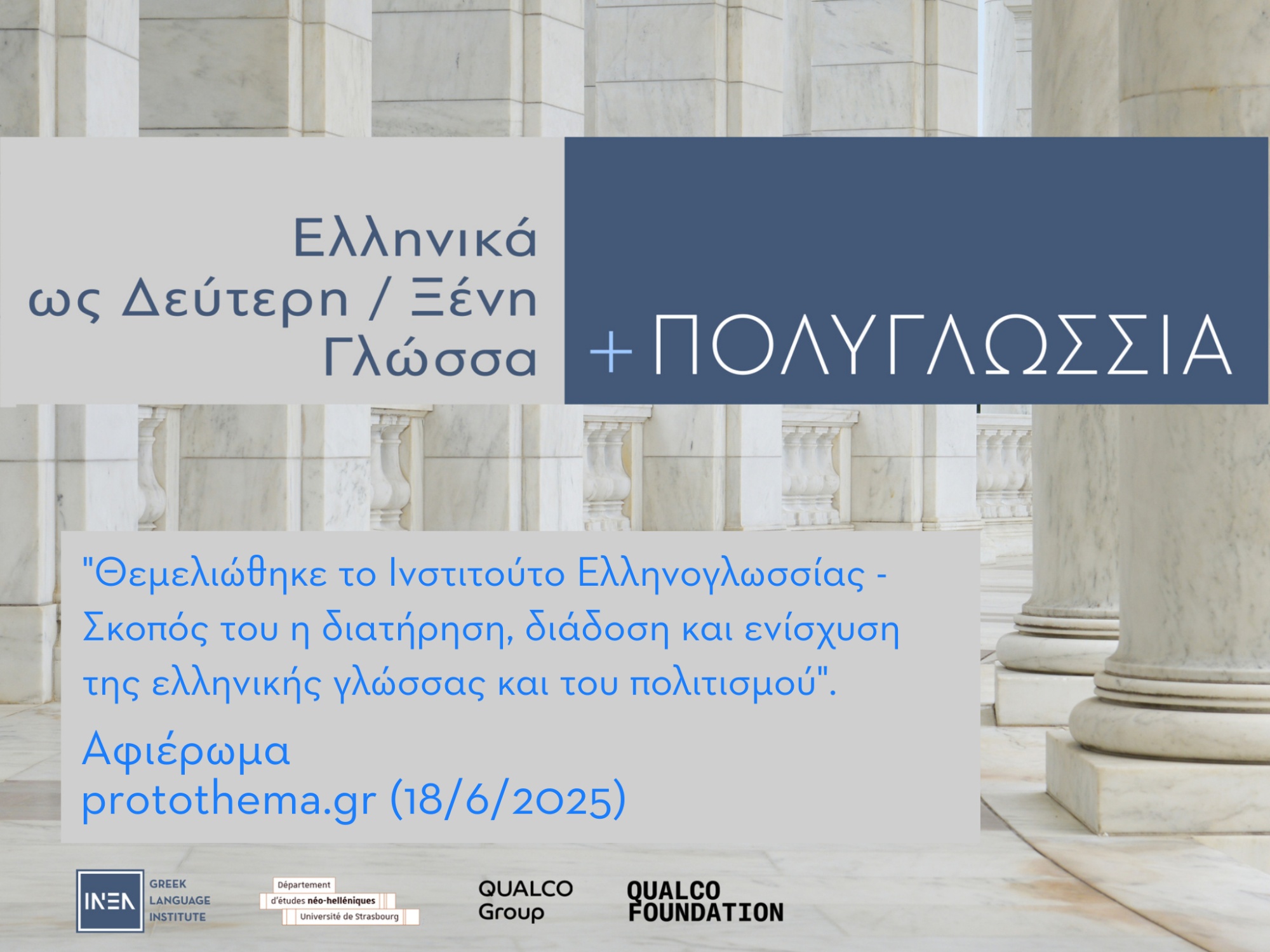In May 2025, the Greek news outlet Proto Thema reported the establishment of the Greek Language Institute (INEL) — a nonprofit organization dedicated to promoting the Greek language globally, especially as a second or foreign language. With a focus on education, multilingualism, and intercultural dialogue, INEL aspires to serve as a vital cultural bridge connecting Greek communities abroad with the language and values of their heritage, while also introducing Greek to new generations of learners around the world.
The newly established Greek Language Institute was officially presented during a high-profile event held at the foot of the Acropolis, organized by its founding supporter, the Qualco Foundation, alongside the Qualco Group. The event marked the launch of an ambitious initiative aimed at preserving, promoting, and strengthening the Greek language and culture worldwide, particularly within the global Greek diaspora and among learners of Greek as a second or foreign language.
In her opening remarks, Evangelia Georgantzi, President of the Institute, a veteran philologist and pioneer in Greek language education, described the event as “a celebration of the Greek language,” emphasizing the Institute’s commitment to contributing meaningfully to Greece’s cultural legacy. She also highlighted the importance of international academic cooperation, such as the Institute’s partnership with the University of Strasbourg Department of Modern Greek Studies, as a sign of the enduring cultural ties between Greece and France.
Greek Minister of Social Cohesion and Family, Domna Michailidou, praised the creation of the Institute, calling the Greek language “a tool of social cohesion” that unites not only Greeks within and outside the country but also newcomers through linguistic integration.
Orestis Tsakalotos, President of the Qualco Foundation, emphasized the power of language as a living carrier of memory, identity, and future potential. He described the Institute not merely as a scientific initiative, but as a window into Greek and European linguistic heritage—one that equips future generations to connect with their cultural foundations.
The evening included a cultural program featuring pianist Dora Bakopoulou and singer Elli Paspala, who shared her personal connection to the Greek language as the child of immigrants. The event drew guests from political, educational, and business communities, underlining the wide support for this endeavor.
The announcement coincided with the Institute’s first major initiative: the International Conference on Teaching Greek as a Second/Foreign Language and Multilingualism, held under the auspices of the Ministry of Education, Religious Affairs and Sports, the Ministry of Culture, and the French Embassy in Greece. The conference hosted 41 speakers from six Greek and 17 international universities, as well as educators and community leaders from around the world. It was co-organized by the University of Strasbourg and the Greek Language Institute.
Greek Language Institute aimed to serve as a lasting hub for educational and cultural action, connecting the Greek language to the realities of a multilingual, globalized world. Through such initiatives, INEL sought to contribute meaningfully to the global promotion of Greek and to strengthen its presence in a changing linguistic landscape.
Qualco Foundation, a nonprofit initiative of the Qualco Group, continued to support projects with strong social impact particularly in education, science, culture, and solidarity seeking to help shape a fairer and more resilient Greek society. Its involvement in founding the Greek Language Institute reflected its mission to empower knowledge, preserve heritage, and invest in a brighter future for all.
The original article in Greek was published by Proto Thema and can be accessed here.

